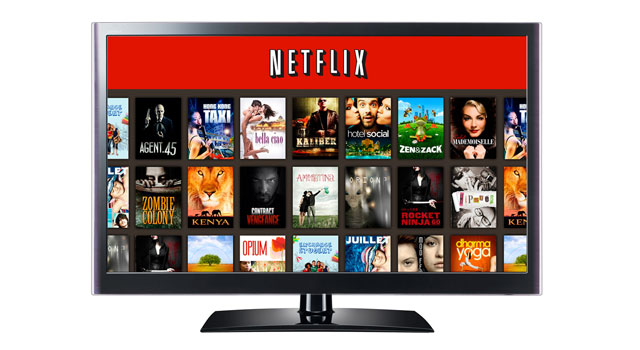
A hacker who has unsuccessfully tried to hold Netflix to ransom has achieved an unexpected result: his failure shows that subscription-based business models in content distribution is making piracy pointless. Intellectual property owners’ slowness in adopting these models is the only reason content is still being pirated.
Someone calling himself (or herself, or themselves) TheDarkOverlord stole most of the new season of Netflix’s popular series, Orange Is the New Black, from a post-production studio and demanded ransom. Netflix refused to pay, and TheDarkOverlord put the stolen material on the Pirate Bay for anyone with a torrent client to download.
But it’s not likely that others the hacker or hackers are threatening — Fox, National Geographic and ABC — will pay up, either. Nor will Netflix regret its decision to hold on to its money: it’s safe to say that its bottom line won’t be affected; the most that might happen is that the fifth season of Orange will be released earlier than planned.
The reason for that can be found in networking solutions provider Sandvine’s Global Internet Phenomena Report. Last year, BitTorrent traffic reached 1,73% of peak period downstream traffic in North America. That’s down from the 60% share peer-to-peer file sharing had in 2003. Netflix was responsible for 35,15% of downstream traffic. File sharing is the only traffic component of Internet traffic that isn’t growing — and isn’t projected to grow — in absolute terms, according to Cisco Systems.
Its content has been pirated since Netflix began producing its own shows, but it’s never left a mark. It has the resources for legal fights when they’re called for, but really, who wants to go through the trouble of using torrents — and risk problems with one’s Internet provider, or, especially in Europe, with the law — to see a season a little earlier? Certainly, no one will cancel their Netflix subscription because one series is suddenly available for free download with an increasingly unpopular, inconvenient technology that doesn’t allow instant streaming. People would only consider that if all the content available on Netflix could suddenly be streamed free of charge.
“Subscription” is the key word here. This business model is a piracy killer.
For 15 years, Adobe Systems tried to sell its image manipulation software for thousands of dollars per box to professional photographers and designers — and everyone I knew in that community used pirated copies at home. Now that the software is sold as a service, for a monthly subscription fee, everyone I know pays more or less happily. As Richard Atkinson, who holds the title of Adobe’s global director of piracy conversion, put it:
Having tried various anti-piracy solutions over the past 15 years that consistently were viewed as having been ineffective, senior leadership had lost confidence in the effectiveness and larger strategic aspects of an anti-piracy programme. To achieve success, it was key for Adobe to make a fundamental change and begin thinking about piracy as a business problem.
Adobe managed to switch to the subscription model without losing revenue. For companies in the content industry, however, it’s been a scarier transition.
Record companies, for example, lost massive amounts of money in the shift to streaming, not least because the music streaming industry pioneers initially gave a lot of music away for free, hoping to build advertising-based business models. Now that this illusion is gone, streaming revenue is quickly growing, and music catalogue owners and artists are more willing to cooperate with streaming services. That means more bands and more songs on the likes of Spotify and Apple Music — and less music piracy. According to Muso, the digital content protection firm, 2016 saw a 6% decline in visits to music piracy sites, including “stream ripping” services that offer illegal streaming.
When it comes to video piracy, sites that illegally stream copyrighted content are the channel that beats torrents and other downloads today. Muso reported 77,7bn visits to such sites in 2016. Though it’s far more convenient than torrents, video piracy is slowly declining. Subscription services such as Netflix are driving it down by expanding user choice and producing their own content, such as Orange Is the New Black.

There will always be a relatively small number of people who consume pirated content because they are averse to paying even a small access fee. Mostly, however, consumers are motivated by convenience. Subscription services don’t cost much, and they’re easy and safe to use. Finding decent quality videos on piracy sites sites without watching invasive ads and running the risk of malware infection is a hopeless enterprise. If you’re like me, you’ll only do it extremely cautiously — and only if the content you looking for is not available from any of the top legal services.
Therein lies a problem. When it comes to video, copyright owners are less willing to release new and in-demand content to subscription services such as Netflix. They are eager to preserve their theatre revenues during a movie’s first run (controversial attempts to make them available for home use, such as Sean Parker’s Screening Room with $50 fees to watch a movie, don’t count), and they’re happier selling older movies to Apple and Amazon which offer them on a pay-per-view basis. That’s why Netflix sees itself as more of a channel than a catalogue: it has little choice in the matter. And it can’t complain of a lack of growth, anyway.
Film studios are missing an opportunity there. According to Muso, in 2016, there were 5,6 times as many visits to film piracy sites than to music piracy ones. Besides, there’s a major risk involved in the current movie distribution model. If hackers had stolen a major release — say, the next part of Pirates of the Caribbean — the studio would be far more worried than Netflix is about the stolen season of Orange.
Eventually, movie studios and streaming services should work out a reasonable, perhaps tiered, subscription price system to make more content available online. It would drive down piracy, as the subscription model did in the software and music businesses, and it would make theft as nearly pointless as it has been in The DarkOverlord’s case. — (c) 2017 Bloomberg LP

